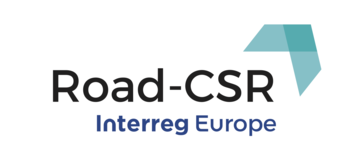The study on the impacts of CSR on SME competitiveness was prepared in frame of the research at NTNU (Norwegian University of Science and Technology).
Corporate social responsibility (CSR) is a business concept known around the world. Although its roots can be traced to the 1950s, its global permeation and advancement is related to the spread of globalization beginning in the 1990s (Carroll, 2015). The global economic crisis of 2008 brought company responsibility into the forefront of many policy-making agendas, including that of the EU. Additionally, growing knowledge of climate change and its causes, demands that businesses consider environmental impacts across their value chain. The 2030 Agenda for Sustainable Development and adoption of the United Nations Sustainable Development Goals (SDGs) in 2015 now guide the world’s approach to sustainable development. As international business processes and a focus on environmental and social sustainability continue to expand, so too does the expectation, and in some cases the requirement, that companies incorporate and report upon CSR in their operations. Extensive work by organizations, such as the UN Global Compact, Global Reporting Initiative and World Business Council for Sustainable Development, now provide guiding material for companies to capitalize on SDG market opportunities and contribute to meeting their targets.
CSR is defined by the European Commission (EC) as “the responsibility of enterprises for their impacts on society” (EC, 2011). The EC also states that, “to fully meet their corporate social responsibility, enterprises should have in place a process to integrate social, environmental, ethical and human rights concerns into their business operations and core strategy in close collaboration with their stakeholders” (EC, 2011).
CSR is defined by the European Commission (EC) as “the responsibility of enterprises for their impacts on society” (EC, 2011). The EC also states that, “to fully meet their corporate social responsibility, enterprises should have in place a process to integrate social, environmental, ethical and human rights concerns into their business operations and core strategy in close collaboration with their stakeholders” (EC, 2011).
In Directive 2014/95/EU, the EC mandates that certain companies disclose non-financial information in their reporting, including how they manage social and environmental challenges. While this reporting requirement will help to increase transparency and accountability in European companies, it only applies to about 6,000 large companies, including listed companies, banks, insurance companies and others designated by national authorities as public-interest entities. This leaves out the predominant form of enterprise in the EU – small- and medium-sized enterprises (SMEs). SMEs are essential to achieve the EU’s growth and jobs strategy, and should therefore also be considered in the requirements for company responsibility. The Road-CSR Project, funded by the European Regional Development Fund, therefore seeks to help member states incorporate CSR considerations into their Operational Programs for application to both large companies and SMEs.
This report outlines the effects of CSR on SMEs’ competitiveness and sustainability, and provides an overview of the business benefits that may be achieved. Chapter 2 gives an overview of some of the main frames of CSR research. These perspectives are essential in understanding the resulting effects of CSR on a company’s business model. Specific business benefits, including improved image and reputation, increased revenue and market share and risk reduction, are presented in Chapter 3. Chapter 4 then explicitly focuses on these benefits in SMEs, considering specific strengths that can be found in SME company structures and values. A stepwise model for integrated SME CSR is also presented and connected to current global frameworks and standards for environmental and social responsibility.







